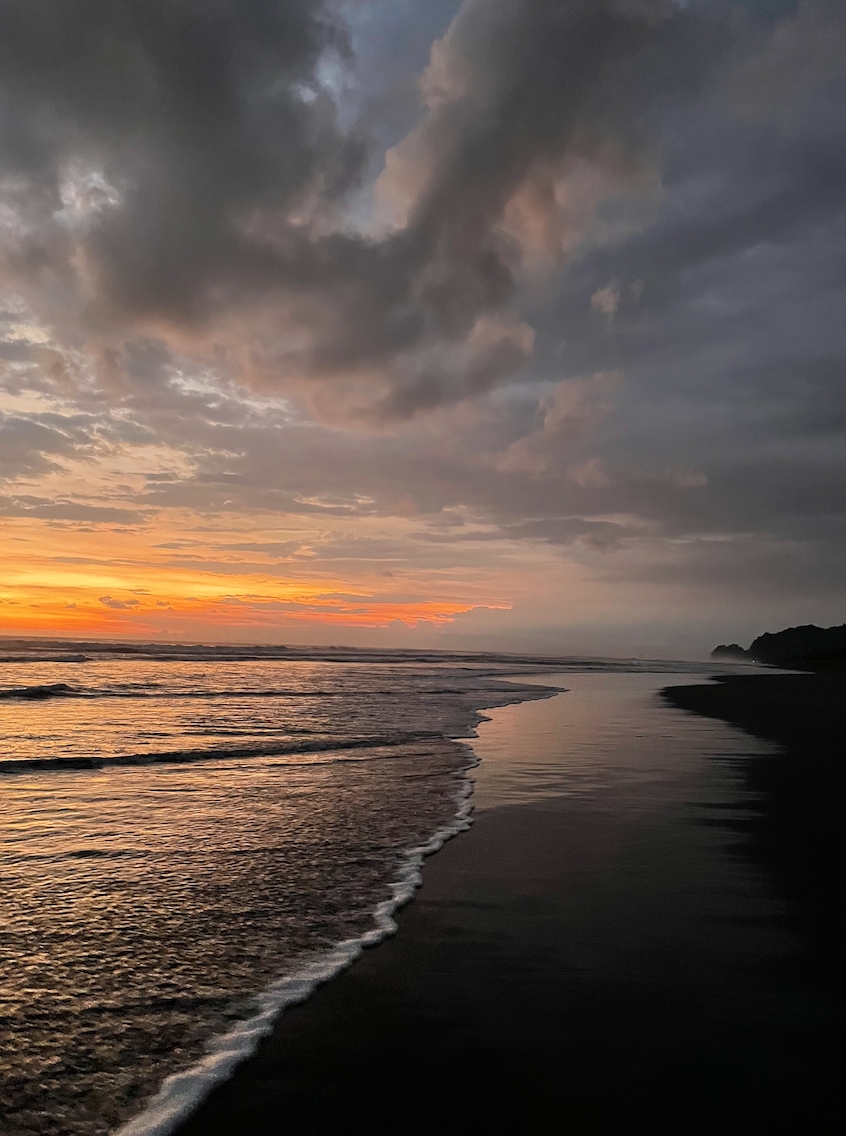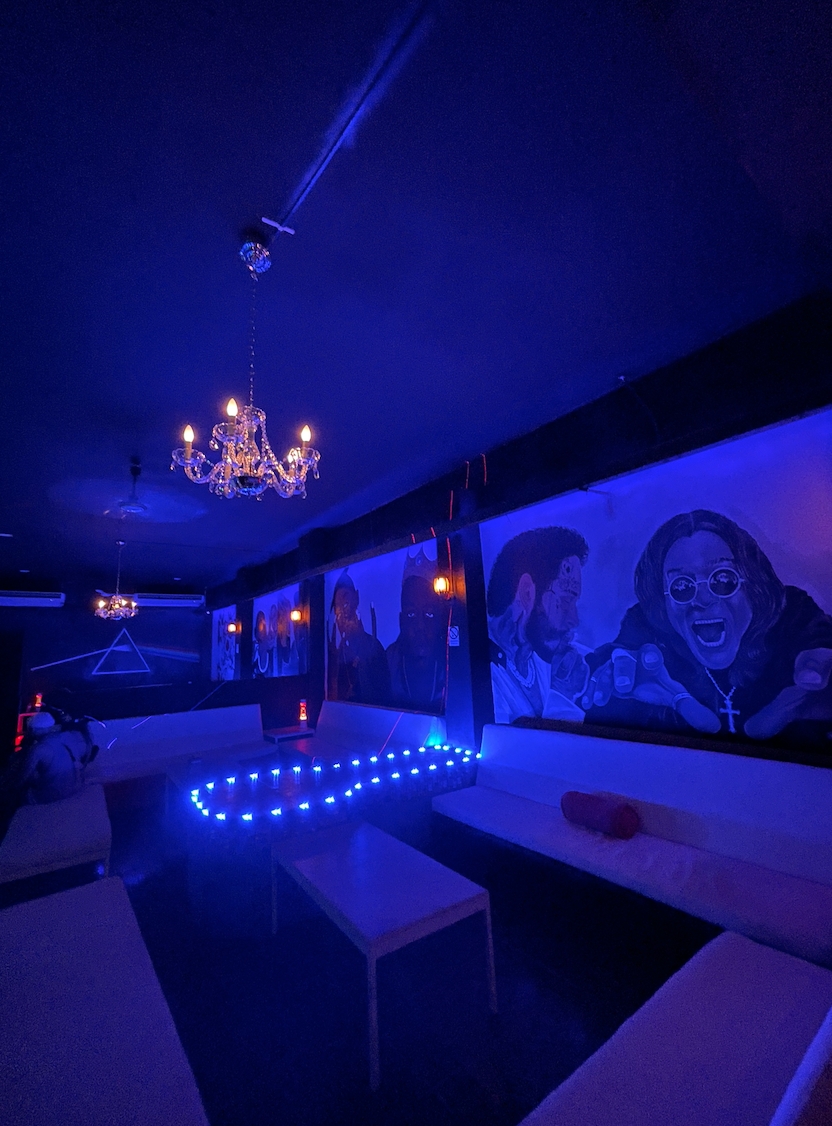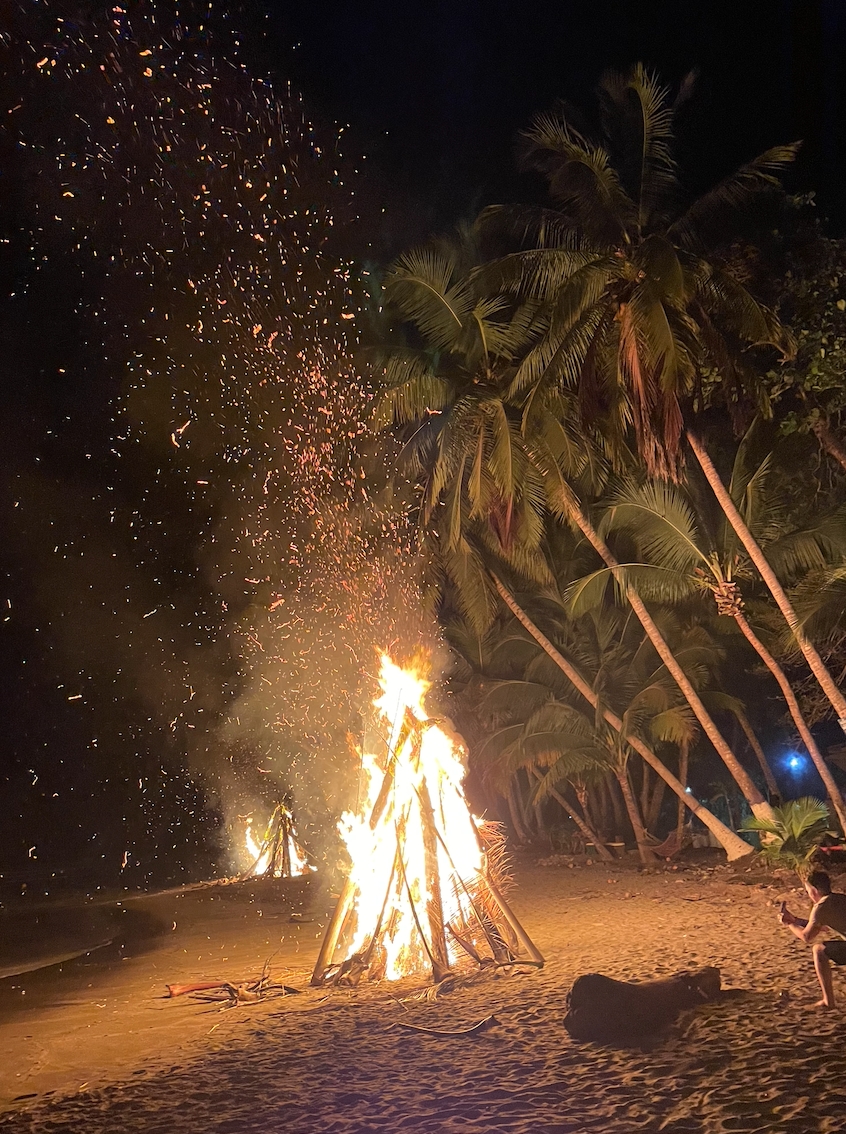“Ugh, I missed Miami Music Week, Ultra, and Envision Festival for this?” I thought to myself. I was… upset. Understandably so, because I’d just been informed that Costa Rica’s inaugural Jungle Dreaming Festival — which I’d hyped up and was hyped on — was canceled. Not only that, I was slated to board my flight from the United States to Costa Rica in just a few hours.
“Should I still go?” I texted a few friends.
With the flights booked, the Airbnb ready to go, and my bags packed, it was sort of a no-brainer. Rather than let the whole adventure fizzle, I decided that I still would head to the airport, hop aboard my flight, and hope for the best. People always say spontaneous travel is the way to go, this was a chance to really live it.
Still, I couldn’t help being a tad resentful. “How ironic that Jungle Dreaming Festival ended up being just a dream,” I said to my roommates on my way out the door.
While the promise of this sustainable festival in Costa Rica offered up visions of community, local jobs, and cultural integration, it ended up being empty promises. Good intentions, sadly, don’t equal logistics or infrastructure. In other words, the hippie energy morphed into Fyre Fest vibes.
Though I was angry, I did have to remind myself that throwing a music festival is hard and throwing a music festival in a foreign country poses its own complex set of issues. That’s not to excuse Jungle Dreaming from not properly crossing their T’s and dotting their I’s when it came to the logistical planning and legalities of throwing such an event — they unarguably failed to get the job done. But it also made me wonder if foreign governments make it feasible for new events to pop up and manage the legalities that come with it. (Or even if they should — it’s not like they “owe us” a festival and there is a part of me that sees “American throwing a festival in Costa Rica” as a new era of techno-fueled colonialism.)
Costa Rica is known for being particularly difficult to work with on projects of this size. Envision Festival — widely beloved and known as one of the world’s best and biggest jungle parties — has still had its fair share of logistical problems over the years. After just skirting by and being able to throw its 10th annual event in February 2020 before the world shut down, it would take festival organizers three years to finally be able to produce the event again. After selling early bird tickets throughout the spring and summer of 2020 for its 2021 edition – that inevitably did not happen – the festival ended up postponing not one but two times due to logistical problems working with Costa Rican authorities and the health department.
That was three years of thousands of upset attendees, a slightly tarnished reputation, and endless hours, time, and promotional resources wasted. This makes it seem both impressive and fascinating that the festival scraped its way back in 2023.

While my earlier Fyre Fest reference might seem a tad aggressive, considering the obstacles Jungle Dreaming faced, it’s an obvious reference point. Fyre is a prime example of an international event gone wrong, one that put hundreds of inexperienced, wealthy influencers and gullible people easily influenced by inexperienced influencers stranded on an island in the Bahamas in 2017. Attendees who were promised and promoted a luxury resort destination filled with music instead found themselves on a garbage-strewn island and were left to sleep in tents after being served a “gourmet meal” of a single cheese sandwich in a styrofoam container.
Oh, and the bands bailed after never being paid. The epic failure would go down in history and live in the minds of people forever thanks to Hulu’s Fyre Fraud documentary and Netflix’s Fyre: The Greatest Party That Never Happened.
But the Jungle Dreaming cancellation wasn’t as catastrophic as the Fyre Festival. While plenty of journalists, musical artists and DJs, and performing artists ended up flying out to be a part of what would’ve been the inaugural event, we weren’t left twiddling our thumbs, wondering about what to do. We were happy to still be in the beautiful country of Costa Rica, not necessarily constrained by the limitations of a heavily scheduled festival. Instead, we were met with a clean slate — days stretching ahead of us with no place to be.
So we did exactly that.

Because so many of the festival’s staff and music artists were already in the area, several of the local businesses put their heads together to ensure that the show – at least to some degree – would go on. The little Pacific coast town of Jacó that was supposed to host Jungle Dreaming also happened to be celebrating the grand opening of a new nightclub, Fuse. It literally wasn’t even on Google Maps yet but with plenty of publicists and music industry know-it-alls in the area the word spread. In a nice twist of luck, Fuse was on-point and worth the would-be festival attendees descending on — boasting freshly painted murals of landscapes and rock music icons, while faux-fancy chandeliers lined the ceiling around a disco ball.
My first night in Jacó, I went to the nightclub with no expectations and left with a little pep in my step — thanks to a pretty decent dancing session with my new industry friends to a live set by one of the members from Stanton Warriors. It was certainly something better to do on a Friday night than just sit in the Airbnb sulking about a canceled festival (watch any Fyre Fest doc and you’ll be amazed at how willing the attendees were to sulk). I found out later that it was festival organizers who tried to rally some of the DJs to play at the nightclub’s grand opening weekend, which ended up still lacking luster due to literally no promotion.
I remember asking myself, “Why isn’t the festival promoting this as a sure-in solution to the abandoned attendees?” My question was never answered.
It would actually be Hotel La Sirena, around a 40-minute drive south of Jacó, that finally upgraded the weekend out of “bust” territory. While Jungle Dreaming Festival left its attendees in the dark all weekend, Hotel La Sirena ended up putting its own last-minute funds together to create a three-night beachside event. Although it was kind of hard to get to, the property invited locals and displaced tourists alike to dance to some wonky jungle bass music on the sand. An-Ten-Nae, Mystic Grizzly, and around a dozen other local and global producers performed hour-long sets on Friday, Saturday, and Sunday nights while fire dancers dazzled the lucky attendees who caught wind of the pop-up event.
On Sunday night, I found myself watching two massive piles of wood get set on fire on the star-lit beach while bass music played in the distance. It was then that I realized the power of the music, travel, and Costa Rican communities. Even though we went to Costa Rica for a festival that was canceled at the last minute, these three communities came together and made sure that the show would go on. Mixed in with all the partying, I found out that the locals were just as excited as all the privileged tourists that flocked to the country for the festival to happen — so they found a solution for not only us outsiders but for themselves to have some fun. From the outside, a music festival might just look like a bunch of drugged-up hippies dancing around for three days straight, but in reality, it does create a lot of revenue, jobs, and tourist money for the area that hosts it.








